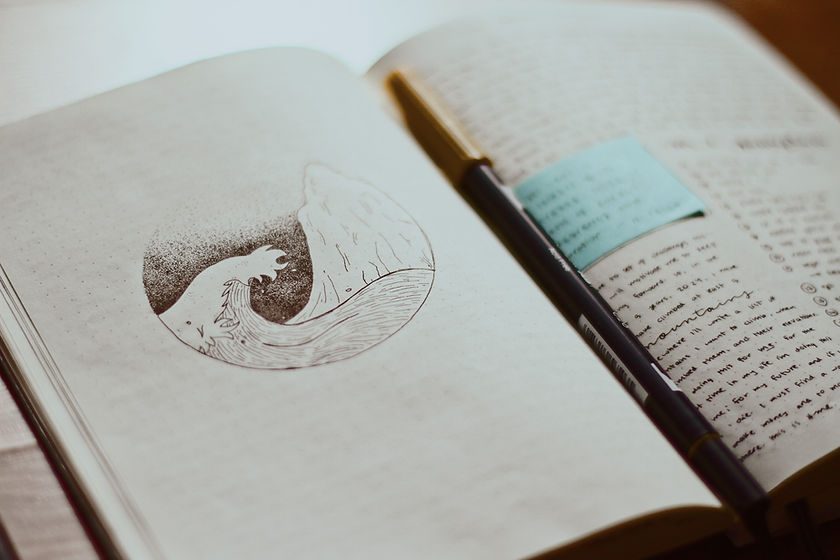
SLEEP
Last updated 24th September 2021
A good nights sleep is important to our mental health and physical health. When well rested, the day seems to go better and we are able to cope with life's up's and down's. We are also less likely to pick at sugary foods and drink for a pick me.
* Make you bedroom a comfortable as possible, especially your bed. Is your bedding soft and comforting? The more comfortable you feel in your bedroom, more relaxed you will be.
* Going for a short walk first thing in the morning helps us to wake-up. Even on a cloudy rainy day the natural light helps to wake us up. Yes getting a good nights sleep starts from when we wake up.
* At the other end of the day turn the lights down low in the hour to hour and half before bedtime. This starts to tell our brain that it's time for sleep.
* Avoid stimulants. Most of us know that caffeine is unhelpful for sleep. However alcohol, and sugary foods interfere with our bodies natural processes delaying sleep and reducing the quality and length of our sleep. Other stimulants include blue light from mobile phones, laptops and tablets.
* Keeping well hydrated can help with sleep.
* Meditation and relaxation apps can also help.

SELF-CARE BOX
January 2nd 2022
Self-care has become a buzz word. In our busy lives it is often ourselves that we forget. Having a self-care box gives us something we can open to give ourselves a lift, or remind ourselves what we need to be fully ourselves. The following are just a few suggestions of things to put into a self-care box. It is by no means an exhaustive list and each of us will have own unique items.
* A favourite film, book, music or magazine.
* A journal and pen.
* Chocolate or sweets.
* Postcards/Photos which bring you joy.
* Tissues for days when you feel sad.
* A favourite mug with special tea/coffee.
* Something comforting.
* Inspirational quotes.
* A list of things to do to keep you feeling mentally well.
* A list of things to do after a rough or unsettling day.

JOURNALING
January 3rd 2021
Journaling can be a really helpful way of expressing and understanding yourself, as well as a way to work things through. Unlike writing a diary there are no rules to journaling. You can write, paint, draw, even stick in pictures. It's your space to express you. No one will be looking at this so you don't correct spellings, grammar, or sentences. You don't need to be neat! Express it, as it is for you. You can just pick up your journal to express something difficult or to record something wonderful. It can be done in a lined book, a sketch book, on a computer or through an app. Whatever work for you. Also see my tip on Gratitude Journalling.

GRATITUDE JOURNALING
Last updated 11th October 2021
Client's who are feeling low have found this particularly useful. It's quick, a little structured and although it's best done daily, it can be done weekly and still have benefits.
How to:
Get a notebook, phone note, whatever you are comfortable with. Next, jot down three things you are grateful for that day. When life is getting you low, this can be difficult, sometimes just writing "I am grateful for the roof over my head" or "I'm grateful for the food I ate today", can be enough. On other days there will be something more specific, "I'm grateful to my partner for cooking diner this evening" or "I'm grateful my friend phoned me, I really needed that chat".
Writing a gratitude journal helps you to keep life in balance and it's also a record of the good things in life, which is great to look back over when you are feeling low.
There are extended versions of this, if your interested check out my blog on Gratitude Journaling.
BOOKS
What Happened To You?
Bruce D. Perry, MD, PhD and Oprah Winfrey
I've recently finished this audio book. It's narrated by both authors which for me gives it an authenticity, you don't always get with audiobooks. The authors take the listener through a journey of discovering how trauma and adverse experiences in childhood, shapes who we become and how we behaviour.
It also challenges conventional thinking about what is wrong with you and this is how to treat it to - What happened to you? For me this question feels more human, creating empathy and understanding, along with greater opportunity to connect at a deeper level. This is backed up with brain science and real-life stories that help illustrate the points being made. It explains the work done to help someone develop resilience and how this has helped them recovery. I've personally enjoyed listening to this audiobook and will take things from it into my own practice.
